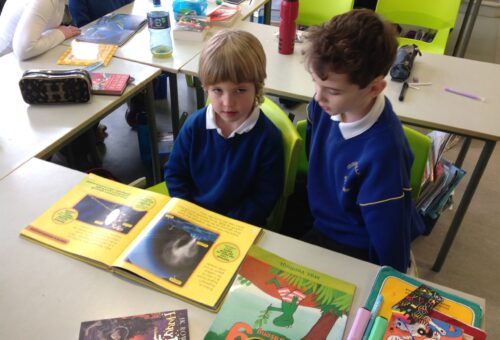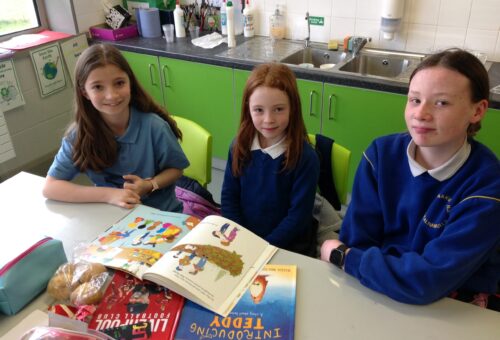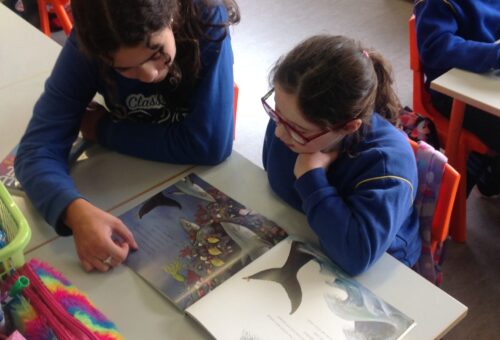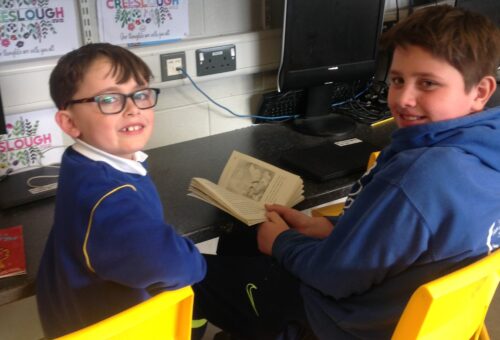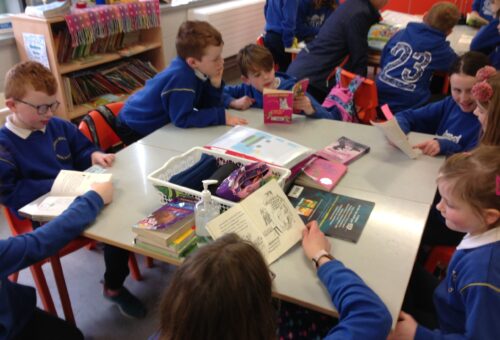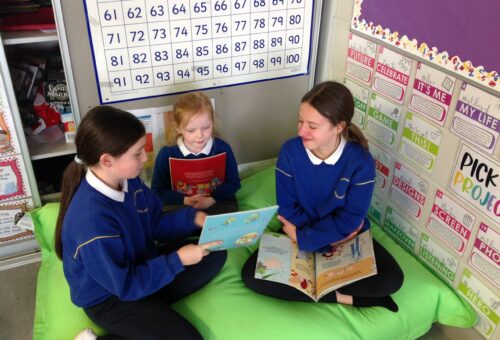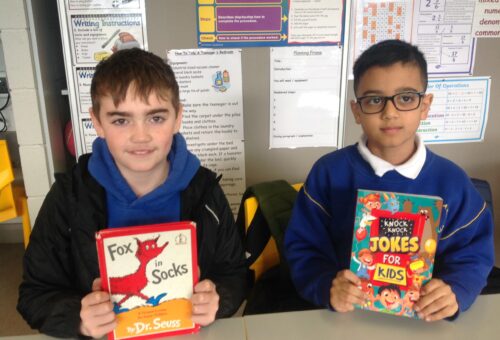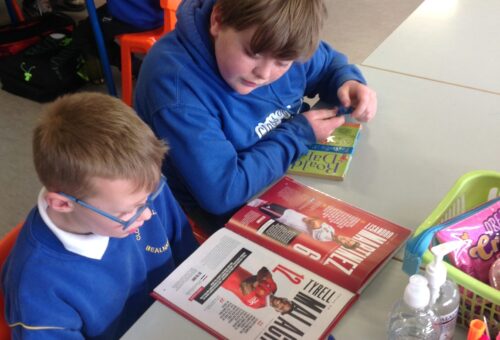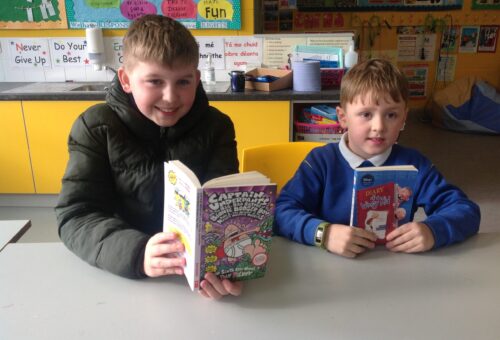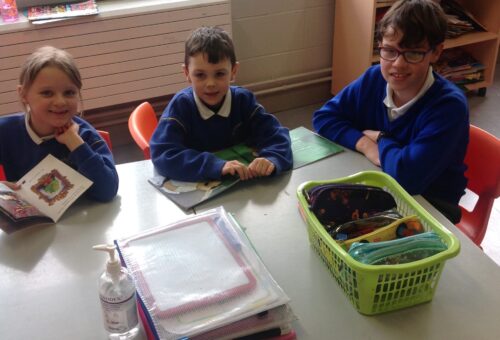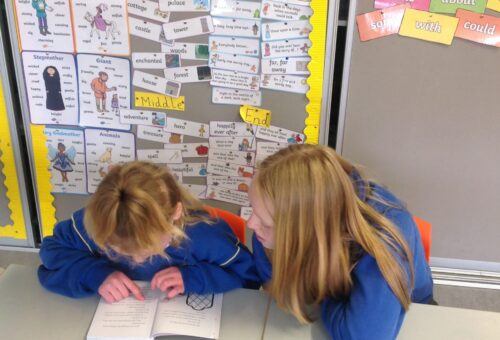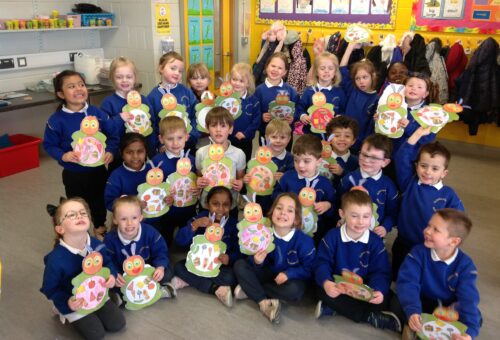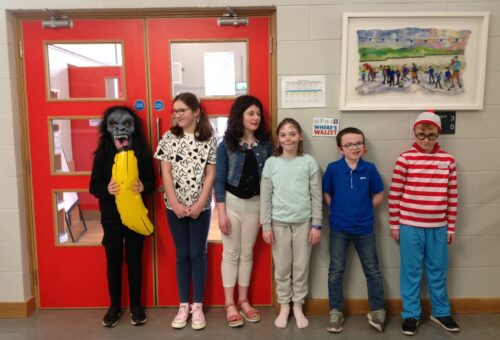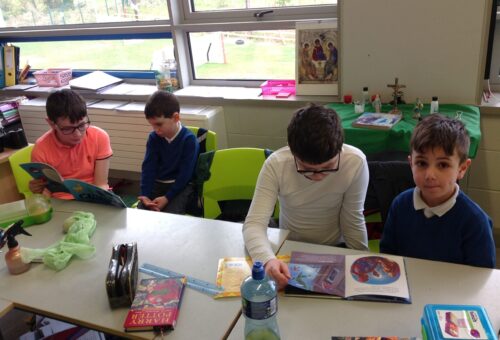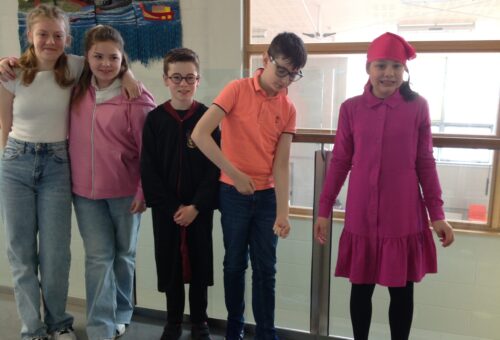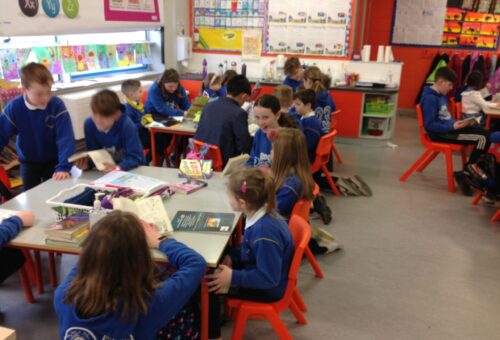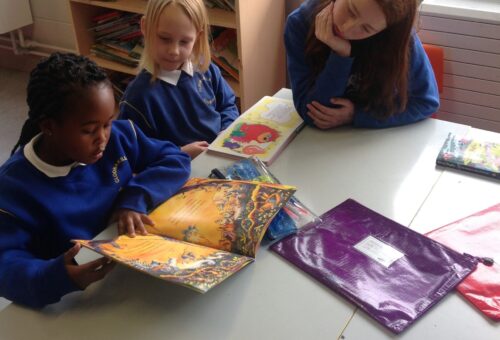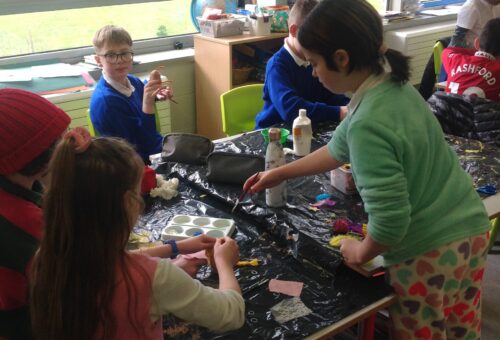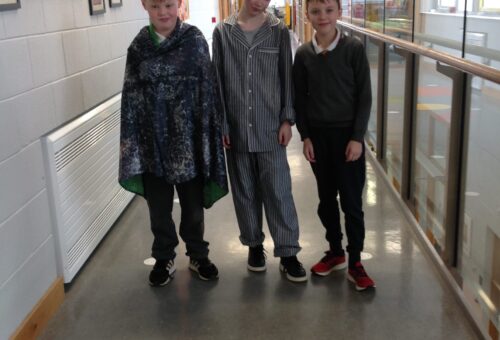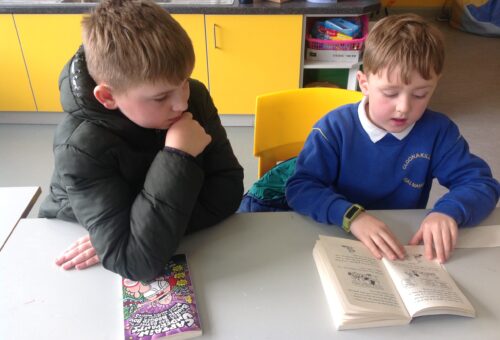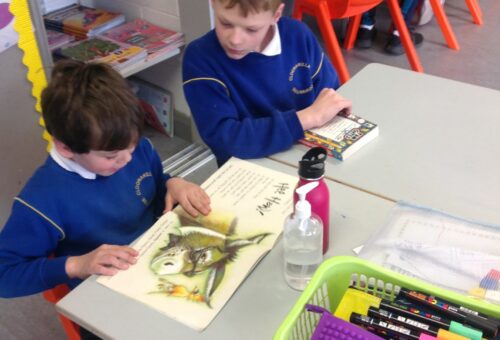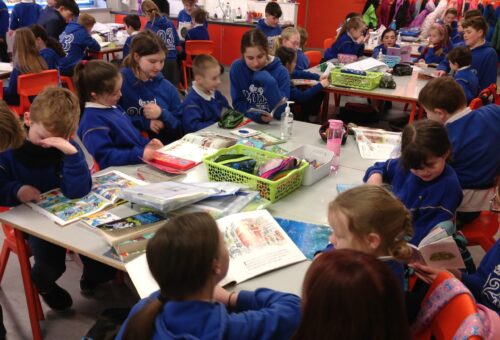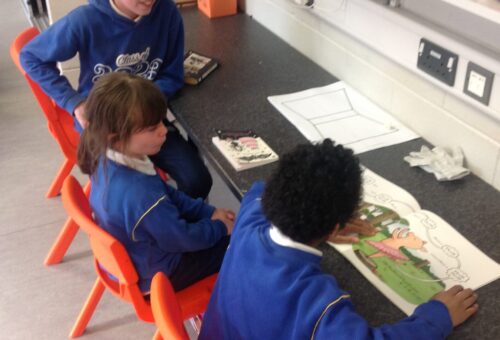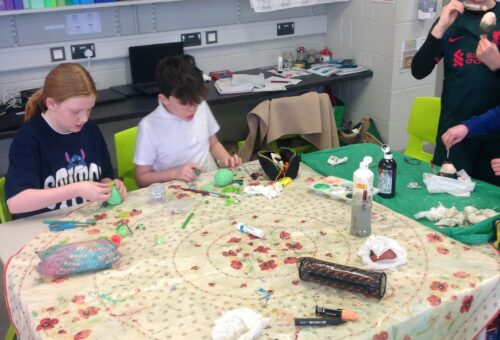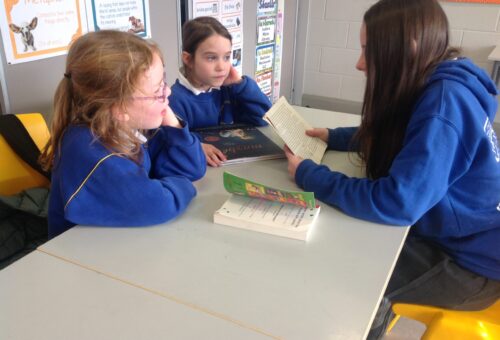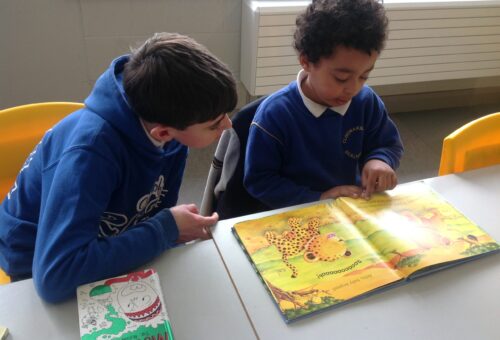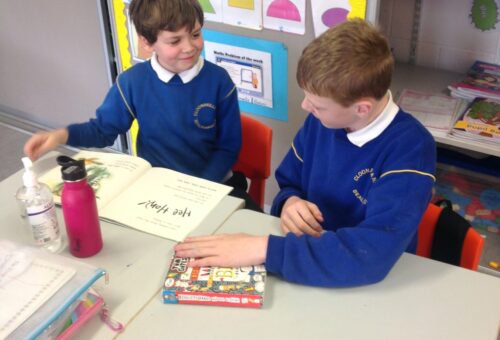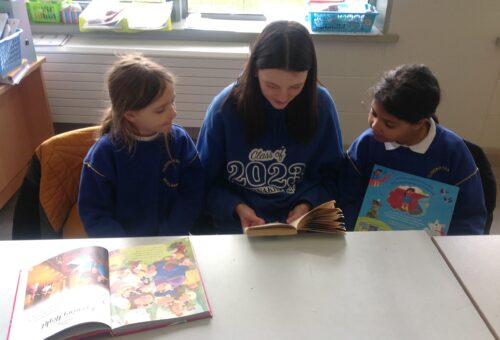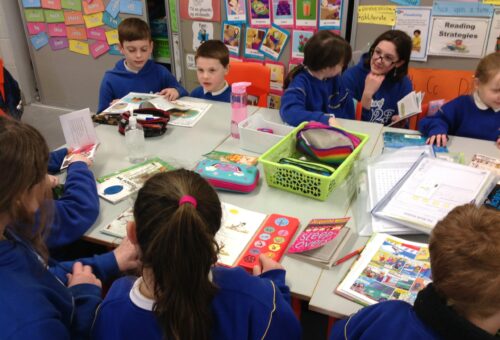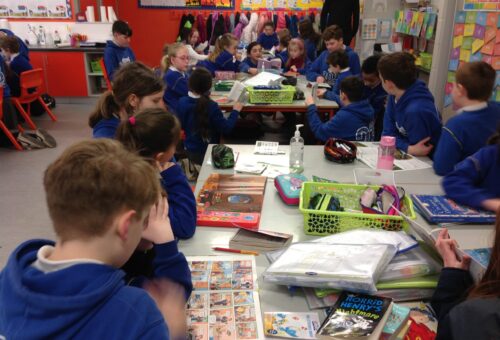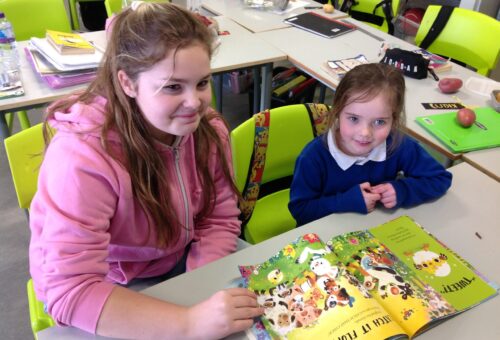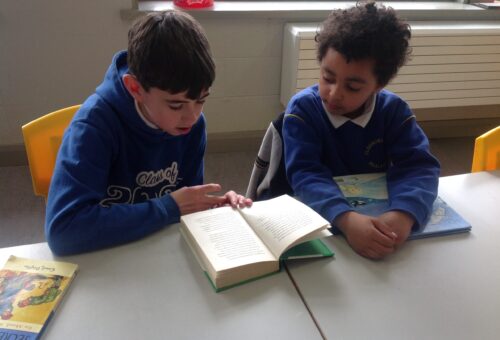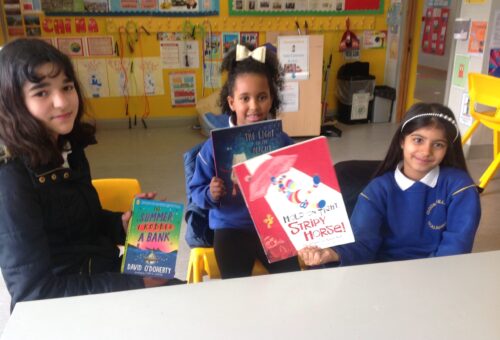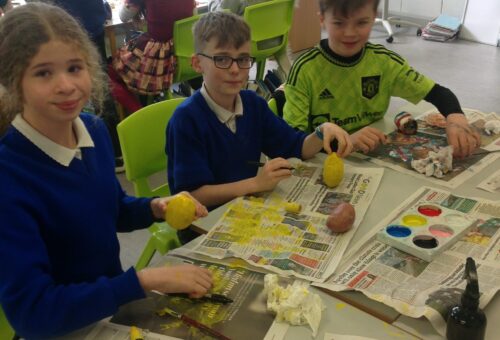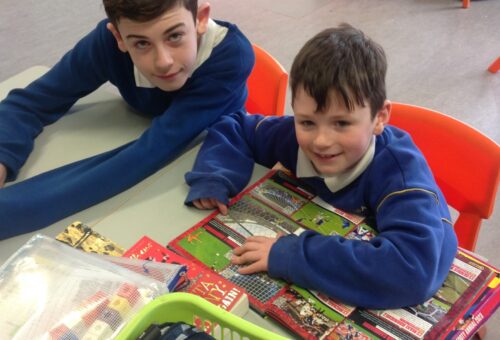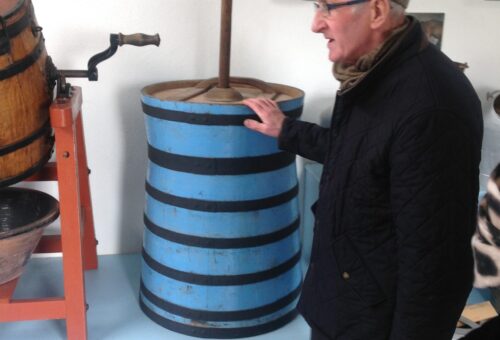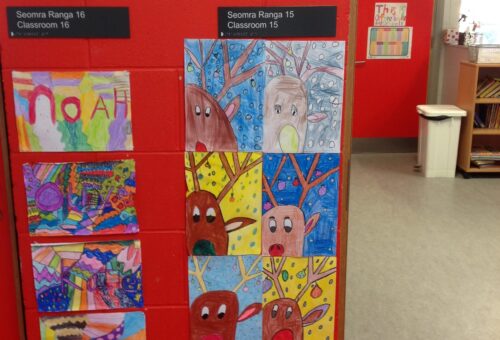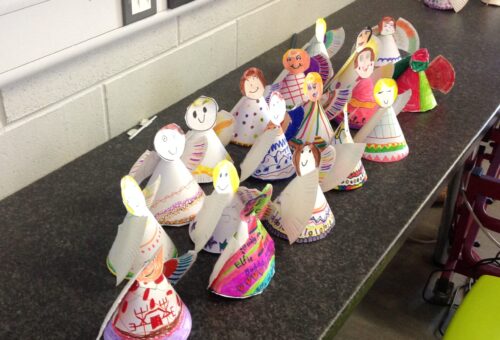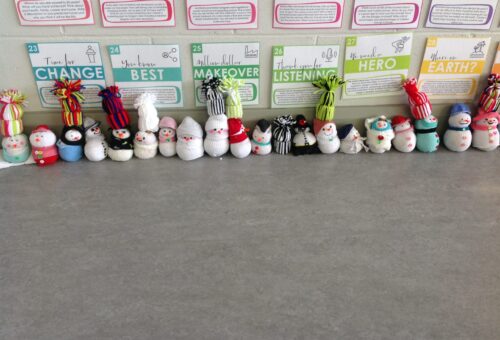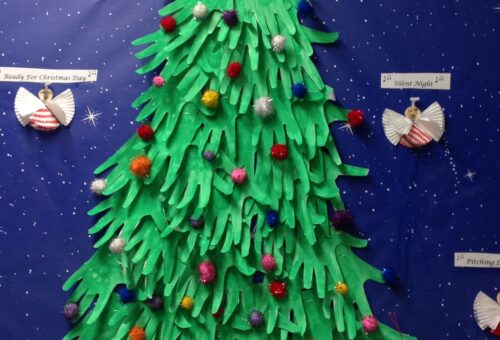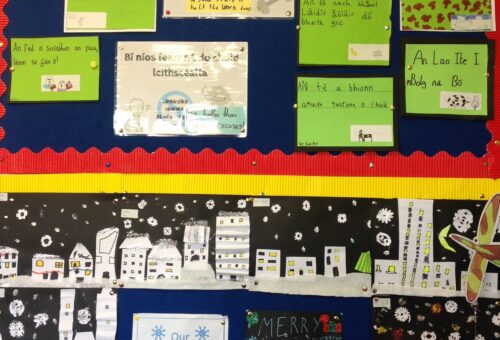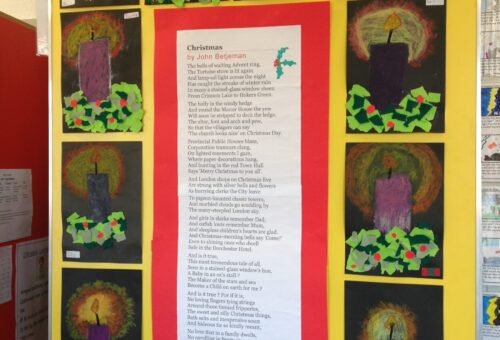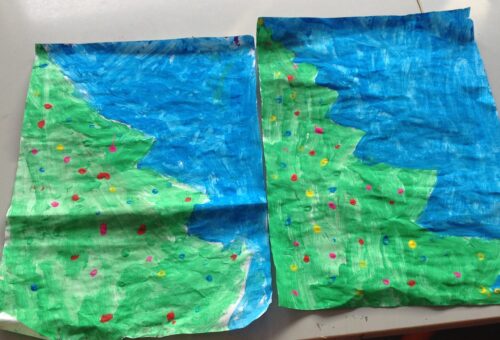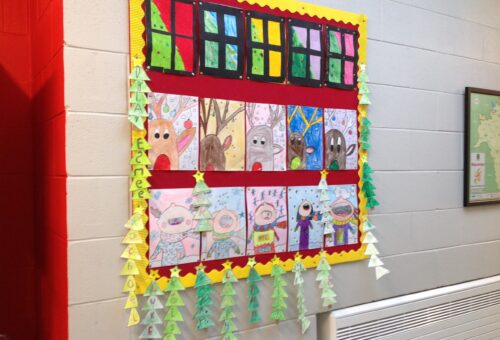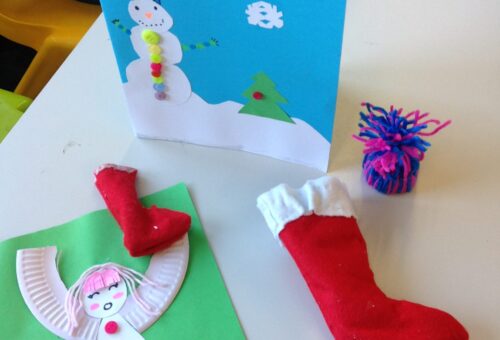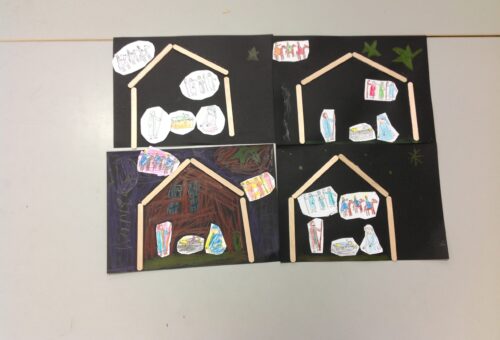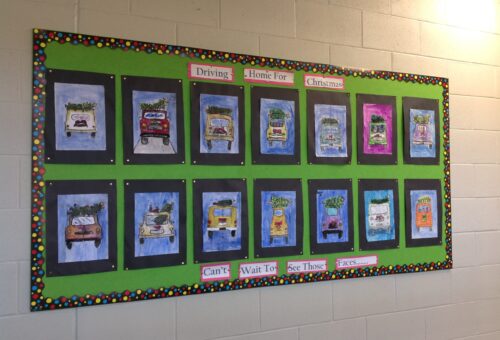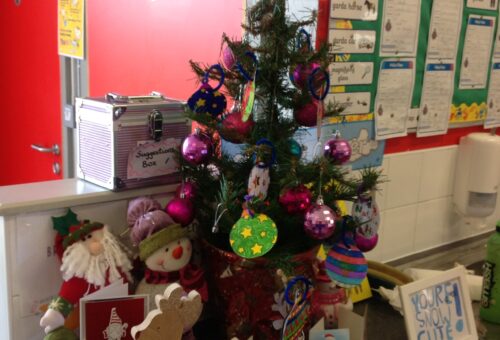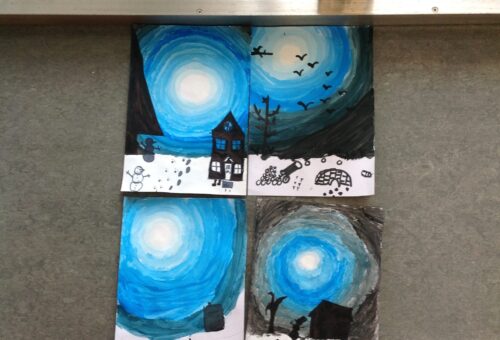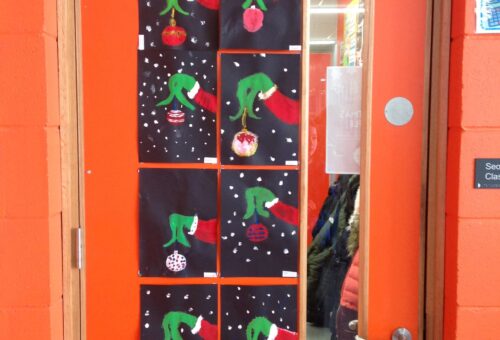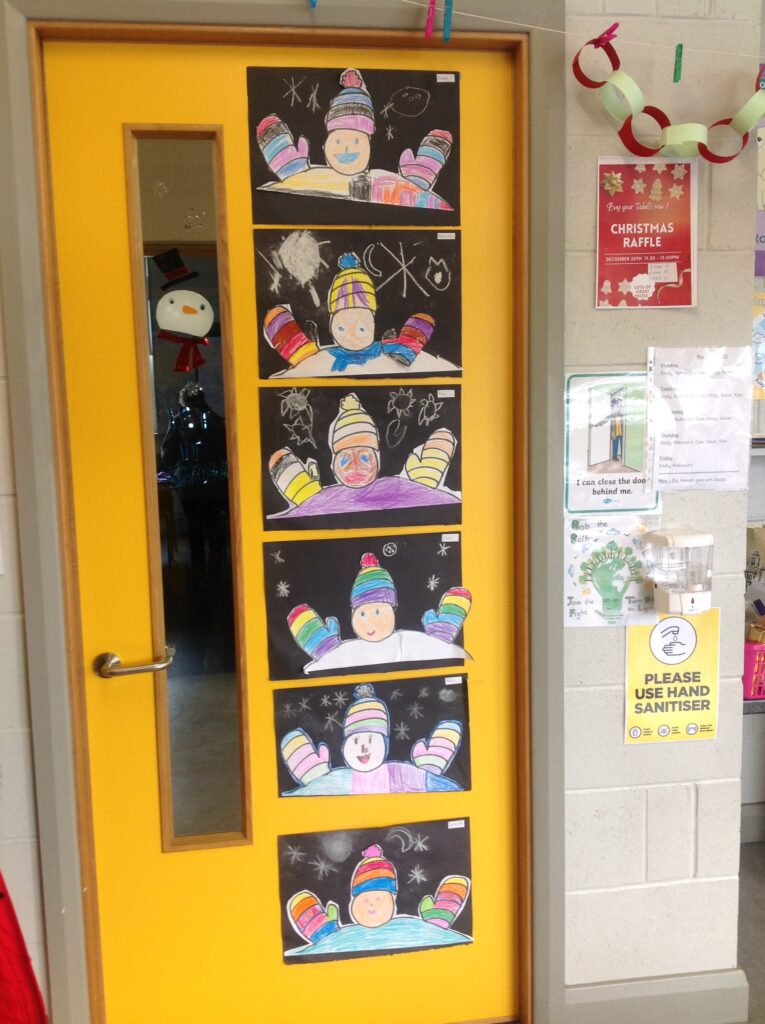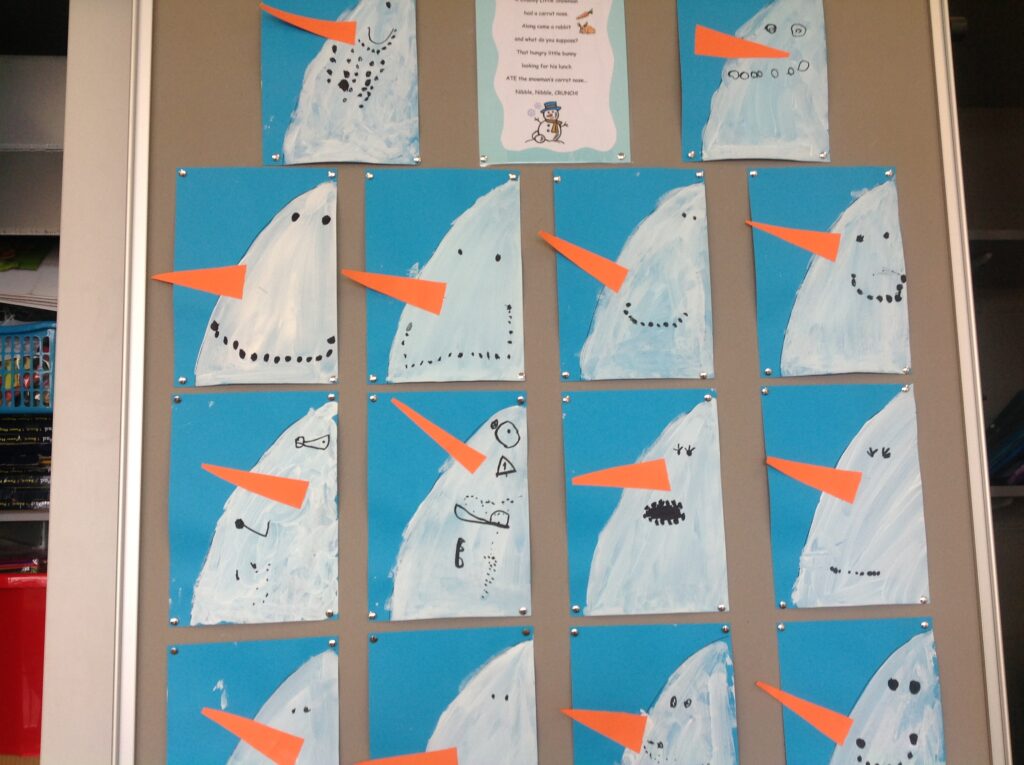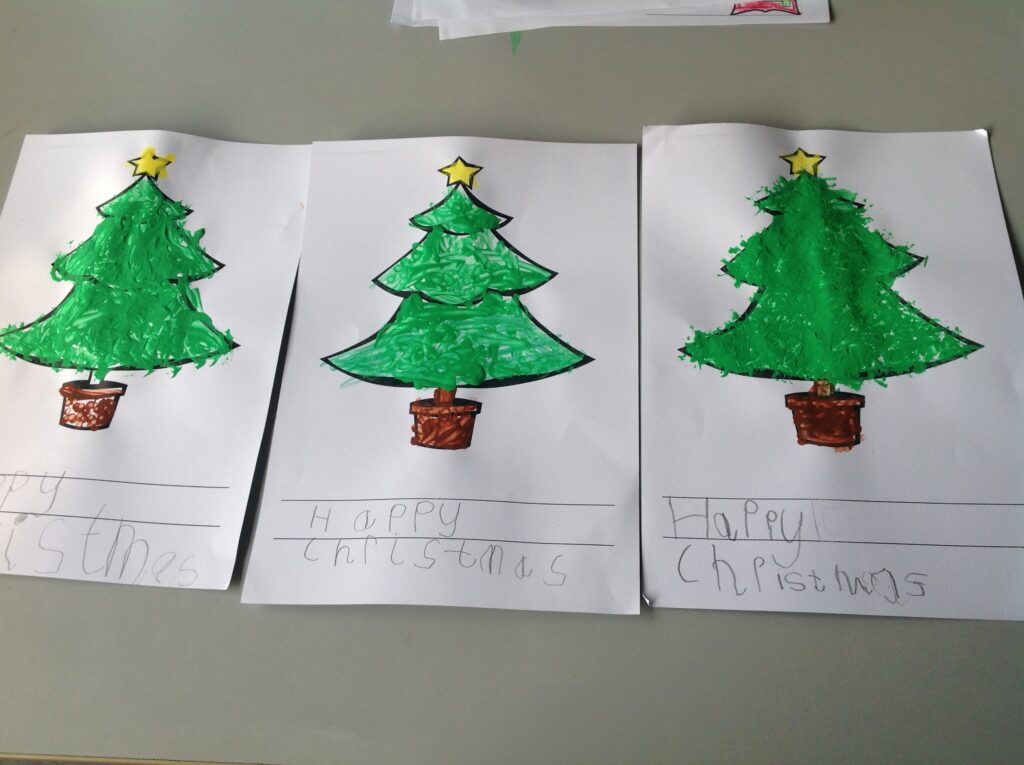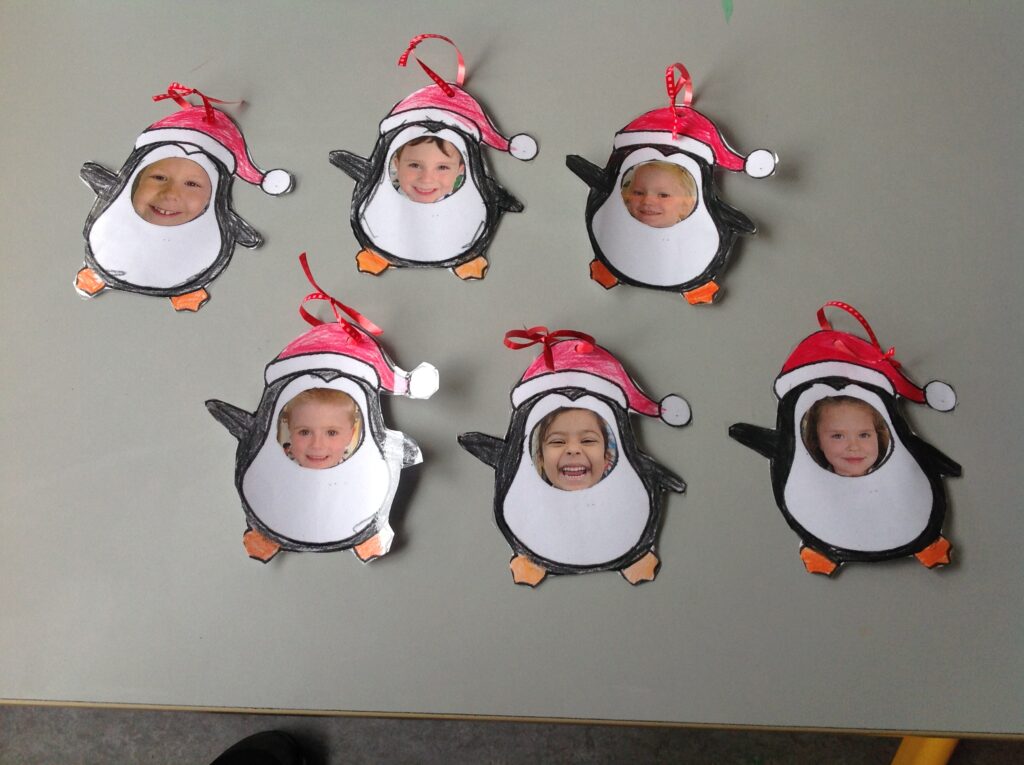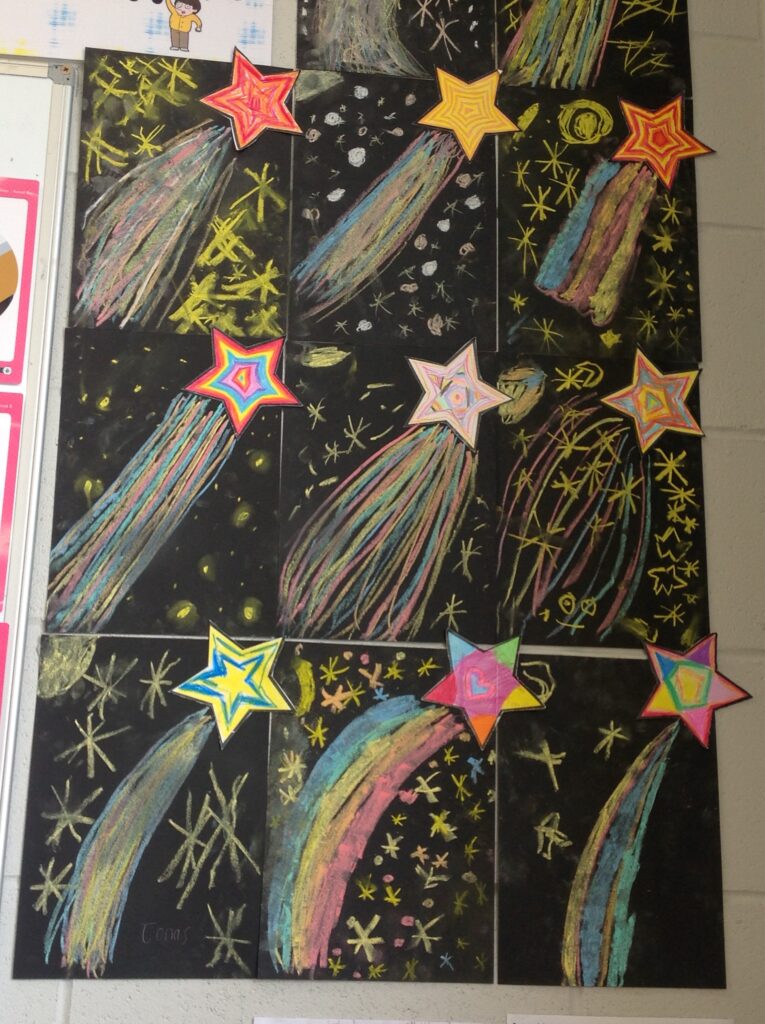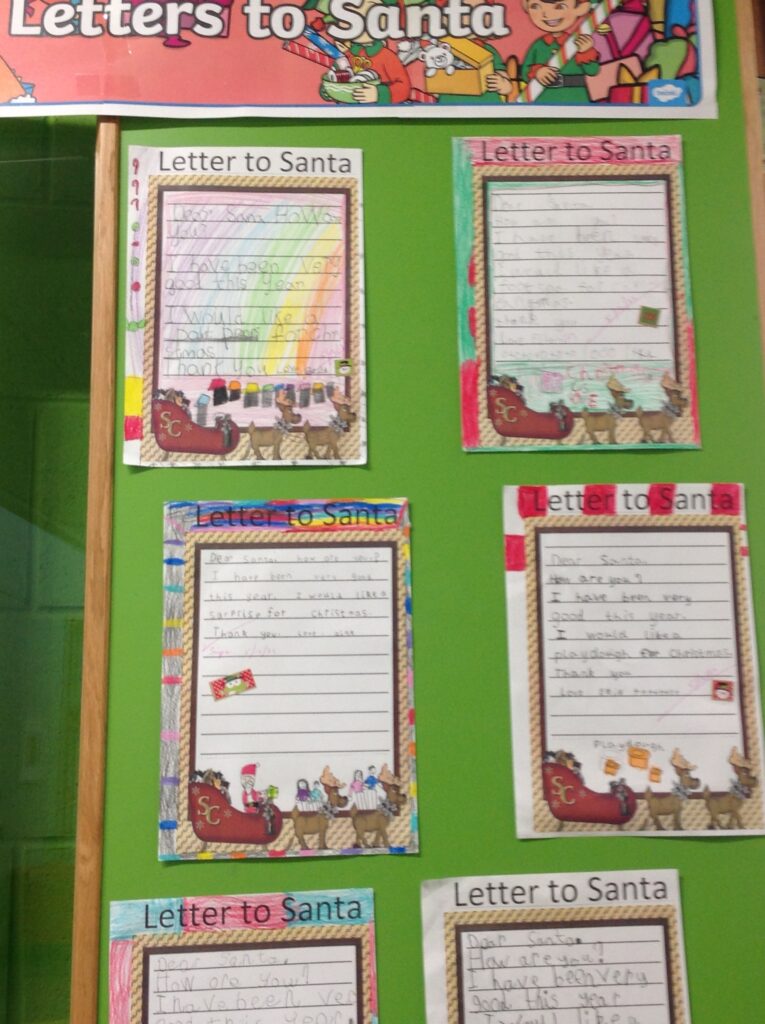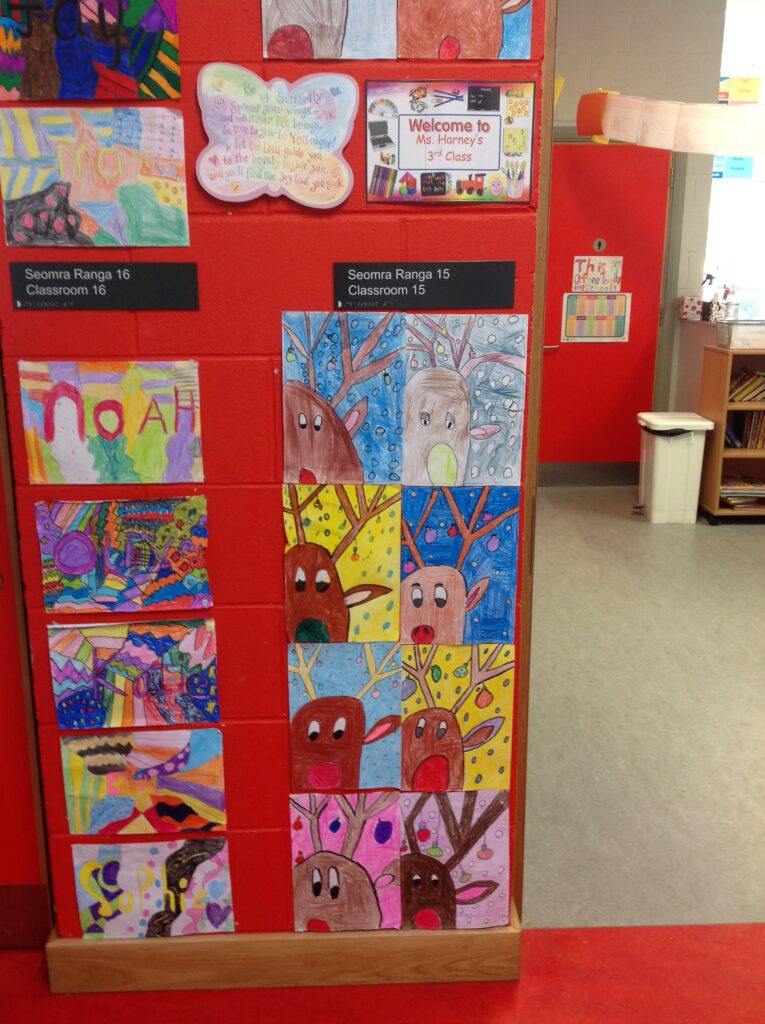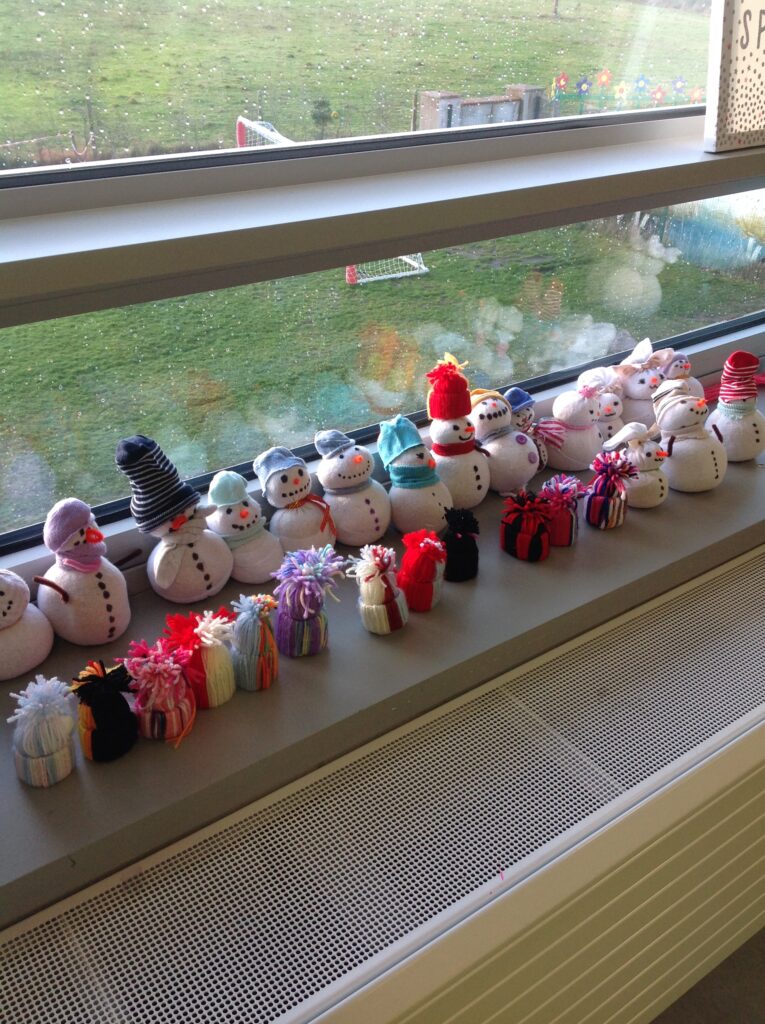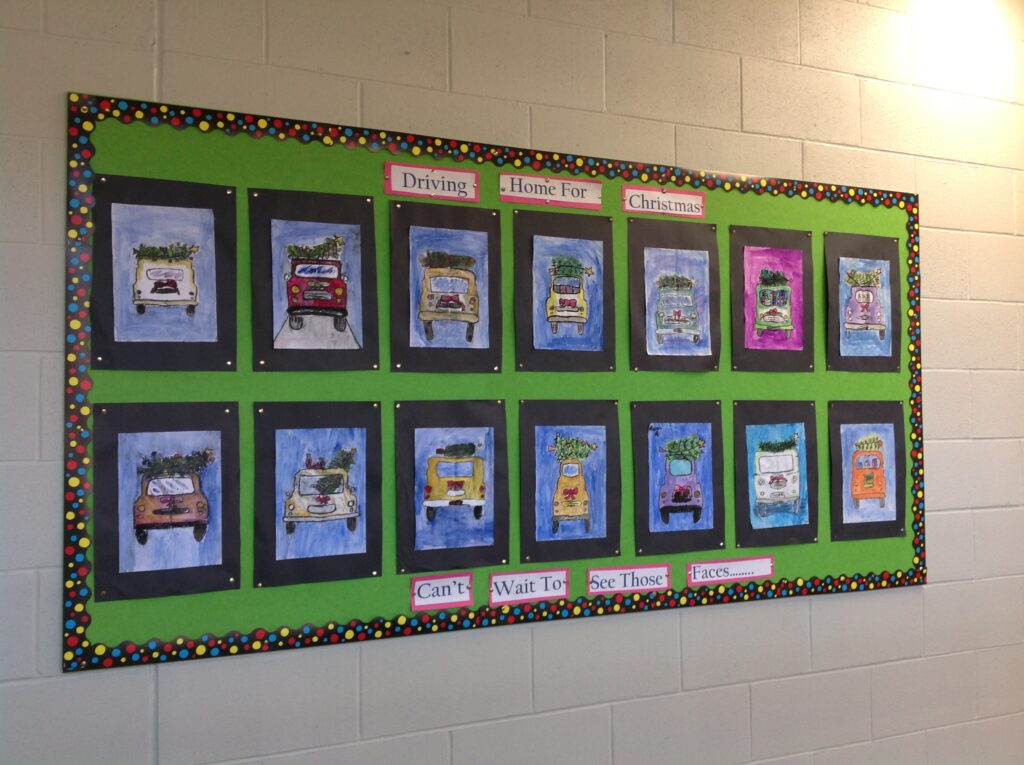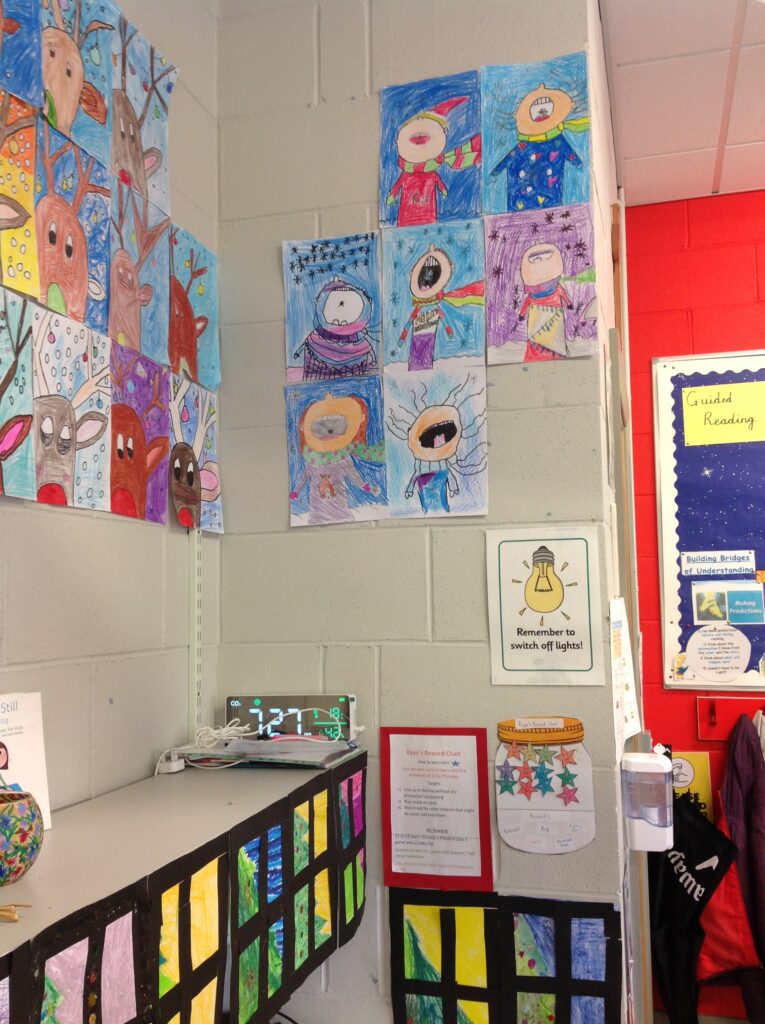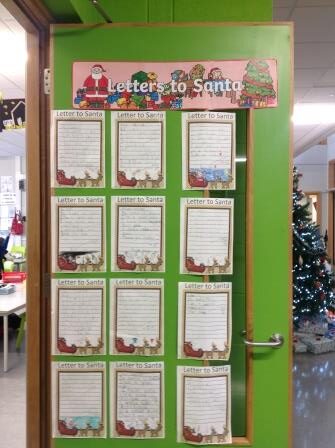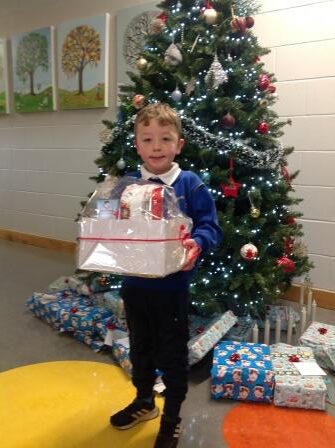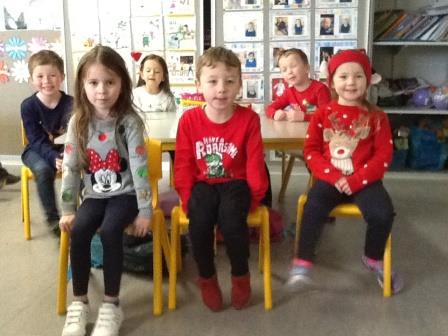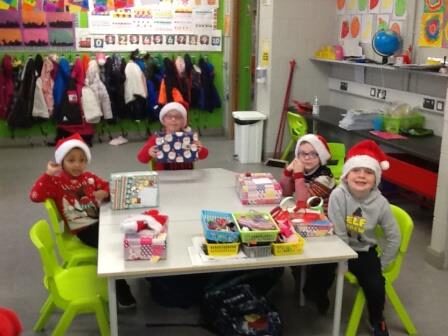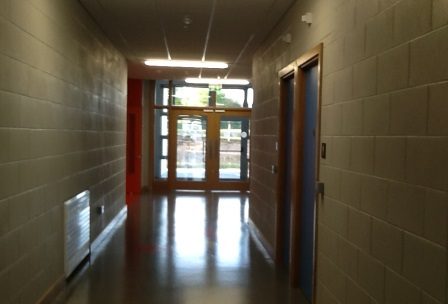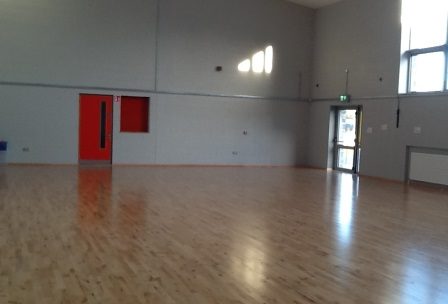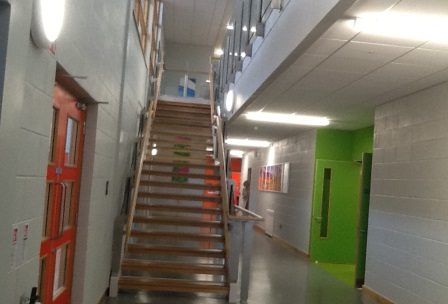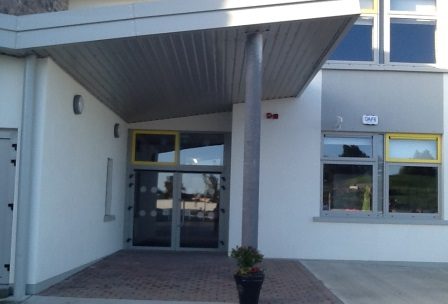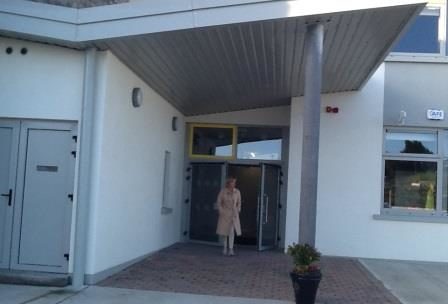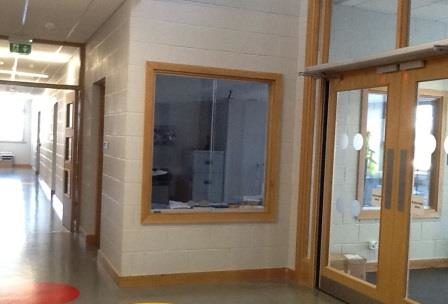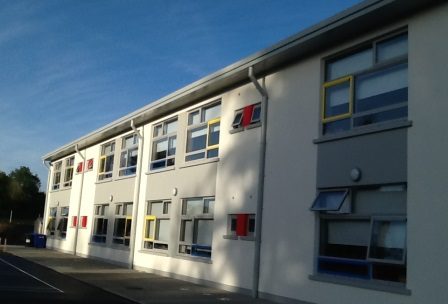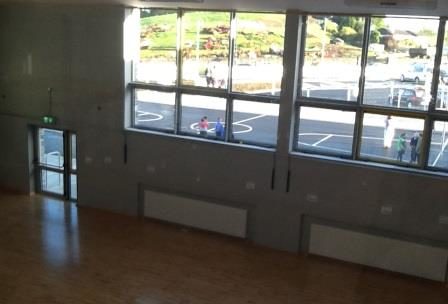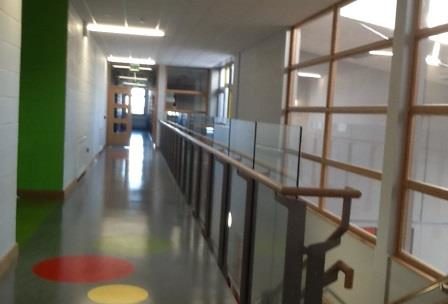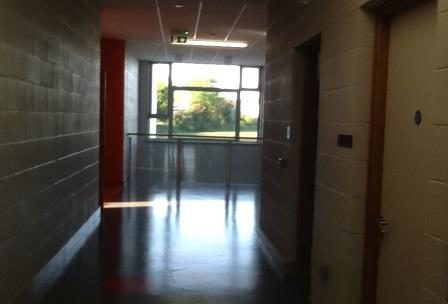Category Archives: Latest news
First Class Visit Derryglad Folk Museum
Christmas 2022
Christmas 2022
Term 2 Third Class
Third class have been learning about Egypt. We had great fun finding out some interesting facts and creating posters to display what we have learned. Have a look at the posters we made. We also learned about all the famous landmarks in the United Kingdom. There are some very interesting places that we would like to visit in the future.
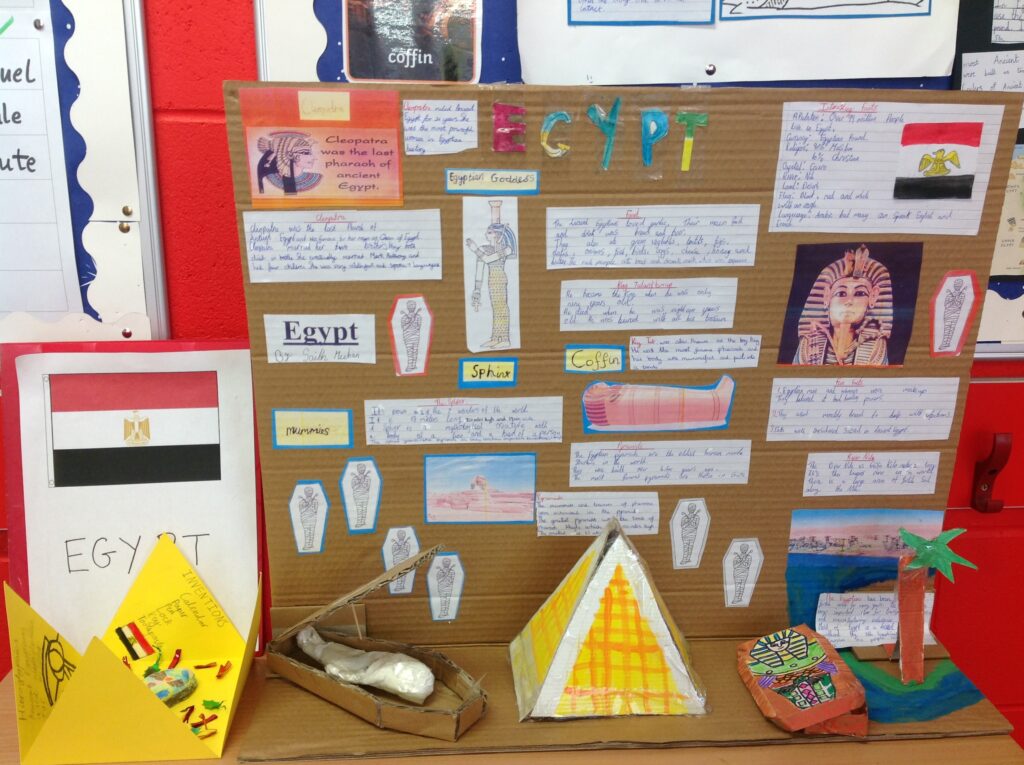


Christmas 2021!
We had an Advent Prayer service. We had our Christmas tree lighting cermony outside the school. The Junior and Senior Infant classes wrote letters to Santa. The Special Education teachers read Christmas stories to all the classes. All the classes had Christmas Arts and Crafts Days. Mrs. Cronnolly and Miss Kelly organised Guess the tune Christmas Quiz. The children from the Amber Flag Committee read jokes over the intercom. The School Council organised a Children’s Fund Raiser Raffle. We watched online the Christmas Pantomime and enjoyed hot chocolate. The children and staff wore very festive Christmas jumpers. Happy Christmas everyone from all the staff and pupils at Cloonakilla N.S.!
Christmas Jumpers.
Special Educational Needs Policy
Special Educational Needs Policy
Introductory Statement
This policy replaces the existing policy on Special Educational Needs (SEN). We felt it necessary to review practice at this stage to reflect the changes that have evolved as we have implemented the New Model and progressed to using online systems for planning and recordkeeping.
This policy was reviewed by the SEN team in consultation with the Principal and class teachers. The PCSP Guidelines provided a scaffold for this policy.
The school currently has the following provisions to cater for children with Special Educational Needs:
- 5 SET & 1 Part-time
- 6 Special Needs Assistants
Guiding Principles
It is the policy of the school to accommodate children with special needs to the best of its ability. We want all children particularly those with disabilities to feel that they are a valued part of the School Community.
Rationale
The rationale for this policy is to ensure compliance with The Education Act (1998), The Education Welfare Act (2000), The Equal Status Act (2000), The Disability Bill (2002), and the E.P.S.E.N. Act (2004).
Relationship to School Ethos
Cloonakilla N.S. is dedicated to the spiritual, emotional and intellectual development of each child (Mission Statement) and the SEN policy is in keeping with this.
Aims and Objectives
- To ensure all children gain access to a broad and balanced curriculum and have opportunity of access to an appropriate education.
- To develop positive self-esteem and positive attitudes about school and learning in these pupils.
- To develop an appreciation of the benefits of education.
- To enable these pupils to monitor their own learning and become independent learners.
- To set out the whole school approach to teaching and learning re pupils with Special Needs.
- To develop a partnership with parents/carers.
- To use all resources efficiently and equitably so that these children develop as learners, engage meaningfully with the curriculum and develop the skills and competencies necessary to lead an independent life.
- To enable all pupils with disabilities in the school to share with their peers as complete an educational experience as possible.
- To support and nurture the development of exceptionally able students and to provide opportunities for enrichment and extension
Roles and Responsibilities
Board of Management (BOM)
It is the policy of the Board of Management of Cloonakilla N.S. that in so far as possible, and in co-operation with the Department of Education and Science (DES) and the Health Executive (HSE), to integrate children with special needs into the school. Where special and exceptional requirements are deemed to be necessary, the Board will endeavour to comply, where possible, to meet these needs. The Board will ensure that all necessary accommodation and equipment are provided.
Principal
The Principal has overall responsibility for the day-to-day management of provisions, working closely with the S.E.N. team and class teachers.
SEN Co-ordinator
The SEN co-ordinator will co-ordinate the implementation of the SEN policy in consultation with the Principal and the In School Management team.
The school will follow the Continuum of Support process.
Class Teachers
Class teachers will monitor and evaluate the needs of their pupils through on-going observation and assessment , communication with parents and outside agencies.
In 1st to 6th class standardised tests will be administered in English and Mathematics at the end of the school year (1st to 6th) and 1st class will be tested in October.
Pupils scoring at or below the 12th percentile will be given priority for Learning Support. Other children experiencing difficulties will be offered support depending on the availability of resources. Parents’ permission will be requested for Learning Support.
Where a teacher or parent have concerns about the academic, physical, social, behavioural or emotional development of a child the school will follow these guidelines:
- The teacher should meet with parents as early as possible to pool their information about the child. Cognisance should be given to the fact that it usually a difficult time for the parents, and this meeting should be of a supportive and encouraging nature. A support file will be opened for the pupil.
- Stage 1, Classroom Support, should be implemented. The teacher should administer screening checklists and profiles for children in infants and first classes. Norm referenced tests will be administered to older children and behavioral checklists will be used where appropriate. A plan for extra help within the normal class should be drawn up and reviewed with the parents.
- If concern remains after two school terms, the SEN team should be consulted with a view to moving on to Stage 2, School Support. The child with learning difficulties should be referred for Learning Support after securing parental permission. If further diagnostic tests reveal that the child would benefit from supplementary teaching an Individual Education Plan (IEP) will be drawn up involving the Learning Support Teacher, the Class Teacher and the parents. The Individual Education Plan (IEP) will co-ordinate the work of all three.
If significant concerns remain after a school term, it may be necessary to implement Stage 3, School Support Plus. With the permission of the parents, the school will formally request a consultation and, where appropriate, an assessment of need from a specialist in respect of the child’s learning difficulties (mild/ moderate behavioral problems or serious emotional disturbance/ behavioral problems). Such specialist advice may be sought from psychologists, pediatricians, speech and language therapists, audiologists etc.
If a pupil is over 8 years of age and is not making progress in literacy after significant interventions it may be appropriate to consider an exemption form Irish.
(See Assessment Policy)
In consultation with the relevant specialists, the SET and the class teacher should then draw up a learning plan and identify any additional available resources that are considered necessary. The parents will be fully consulted throughout this process. Regular reviews will take place with the necessary adjustments being made to the plan.
Special Needs Assistant (SNA)
The Special Needs Assistant (SNA) will
- Share information about the child’s talents, strengths and needs.
- Support the implementation of targets relating to the needs of the child.
- Provide feedback which will contribute to monitoring and reviewing the child’s progress.
Special Education Needs Team (SEN)
The SEN co-ordinator will lead the SEN team in consultation with the Principal. [Appendix 2 Year at a Glance]
The SEN team will co-operate with the staff and parents in supporting children with learning needs. They will be responsible for diagnostic testing and will develop IEP’s for each child selected for supplementary teaching in consultation with class teachers and parents.
They will work with The Assessment Co-ordinator to administer a range of assessments. Diagnostic tests administered in our school include the Jackson Get Reading Right, Phonological Awareness Test (Robertson & Salter), Aston Index, WIATT , N.N.R.I.T., Jolly Phonics Assessment Kit, Math’s Recovery Assessment Tests and Reading Recovery Observation Survey including British Ability Scales Reading Test, Letter Identification and Word Writing Test. We may also administer the Schonell Reading and Spelling Test.
The SEN Team will monitor and record progress towards achievements of learning targets.
Parents
Parents will keep the school informed about the needs of their child. They will be involved in the planning process and will support the school in the implementation of their child’s IEP. Parents may request a review of their child’s IEP in accordance with the EPSEN Act, 2004.
Children
Children where appropriate will monitor their own learning and be involved in the planning process.
Facilities and Resources
The Mainstream School has five resource rooms. The school has ample resources for Special Needs aids which are stored in the resource rooms.
Enrolment
It is the policy of the Board of Management to accommodate children with special needs to the best of its ability and in line with the Department of Education and Science rules and regulations.
Differentiation
Access to the schools broad and balanced curriculum is achieved for most children by differentiation of class work by the class teacher. The class teacher will liaise with the Learning Support / Resource Teacher and provide interventions that are additional to and different from those provided under the normal school curriculum to support those with difficulty in literacy and numeracy and those who are exceptionally able. The school makes every effort to ensure a balance between withdrawal and in-class tuition.
Early Interventions
The triggers for early intervention will be:
- The child makes little progress even when teaching approaches are directed at identified areas of weakness.
- The child is slow to develop literacy and numeracy skills.
- The child has social difficulties (communication, relationships etc.)
- The child has emotional/behavioural difficulties which do not respond to behavioural management techniques.
- The child has physical difficulties.
If the strategy of differentiated support does not work, the class teacher will inform the parents that their child’s needs might be better served in a small group with a support teacher. The Class Teacher and the Support Teacher will differentiate the curriculum with realistic targets being set. The Support Teacher will implement an educational plan for the child either as part of a small group, as part of the whole class or on an individual basis. Where progress is such that the child is no longer giving cause for concern the child will revert to the class curriculum.
The Literacy Lift Off programme will be offered to pupils in First class and Senior infants on a rolling 6 week intervention basis throughout the year.
The Reading Recovery will be offered to children in Senior Infants and First Class where there are concerns around emergent literacy. At present the school has two Reading Recovery Teachers and places for 8 pupils on the programme.
Individual Educational Plans
Purpose of IEP
- To focus on the particular learning needs of the child.
- To set learning targets in relation to these needs.
- To identify areas of strength in the child.
- To have ongoing assessments and re-evaluation of the child’s progress.
IEP will include:
- Child’s details, assessments and background information.
- Personnel involved in the development and implementation of the IEP.
- Learning strengths.
- Learning needs.
- Recommendations from outside agencies including NEPS, HSE, Sp &L OT and others where relevant.
- Priority learning needs.
- Specific learning targets.
- Appropriate teaching strategies to achieve the targets.
- Suitable resources to achieve the targets.
- Class teacher involvement
- Home involvement.
- Review date.
See attached template.
There will be two instructional terms in the year – September to January and February to June. Targets will be set in September and reviewed in January. Following the January review new targets will be set. These will be reviewed in June.
The SEN teacher has responsibility for the co-ordination of the IEP. Parents and teachers participate in the preparation of the IEP. This is facilitated through meetings co-ordinated by the relevant SEN teacher. Class teachers will meet with relevant SEN teacher. Following this the SEN teacher will meet with parents. When plan has been drafted it will be signed by parent, SEN teacher and Principal (For Low Incidence pupils only). Parents will receive a copy of the IEP and a copy will be kept in the school.
All reviews and IEPs for pupils will be completed on Aladdin so that they are fully secure and also available for all staff concerned. Hard copies will be printed off for parents.
In addition to the online records a hard copy file will be maintained for School Support Plus pupils. Reading Recovery files will also be maintained in hard copy.
School Support files and EAL files will move to being fully on line on a phased basis.
.
Inclusion
The goal of inclusion is to enable all pupils to belong within an educational community that values their individuality. This school attempts to promote inclusion through:-
- Modifying activities.
- Allowing all children participate in oral work.
- Allowing all children the opportunity to participate in group work.
- Providing appropriate tasks and practical work.
- Providing a supportive environment for all pupils.
SEN Tracking within the school:
- A current list of SEN supports- Classroom support, School support or School Support Plus – will be maintained by the SEN co-ordinator. Each class teacher and SET will hold a copy for his/her class.
In June list of SEN supports for the new year for each class will be updated (Classroom support, School support or School Support Plus) in consultation with class teacher and SEN team.
A hard copy will be placed in the Assessment Folder for handover to the new teacher.
- Class tracking system. (New June 2021)
A summary SEN interventions will be maintained for each class to track interventions throughout their school life. In June a hard copy will be included in the Assessment Folder for handover to new teacher.
Communication
The school communicates with the following as required:
- Educational Psychologists.
- Health Service Executive.
- Special Education Needs Officer.
- Speech and Language Therapists.
- Occupational Therapists.
- Social Workers.
- Visiting Teachers
- REIS
Timetabling – Inclass/Withdrawal
Timetabling for Resource and Learning Support is done through a collaborative approach between SET Teachers, Class teachers and Principal. Due recognition is taken of the specific needs of each child.
Monitoring
The school will evaluate the effectiveness of Special Needs Provision through monitoring standards reached, case samples from children, the views of parents, staff feedback and continued levels of intervention.
Child Protection
In light of the Children First Act 2015 and the new Child Protection Procedures for Primary Schools 2017 the following amendments were added.
- If a teacher is engaged in one to one teaching with a child there will always be a glass panel in the door and the teacher will keep a table between him/her and the child.
- There will be an open door policy for pupils with complex behavioral issues.
- The SEN teachers will call to the door of classrooms to collect and return children from infants to second.
Ratification and Communication
This policy is to be circulated to:-
- All teaching staff and Special Needs Assistants.
- Policy will be available to parents.
Implementation
This policy will be implemented in the school year 2021-22
Review
The policy was reviewed in March 2021
Ratification
This policy was ratified by the Board of Management in April 2021
________________ ______________________
Chairman, Board of Management Date
New School
Over the summer the new school was a hive of activity. While there was a lot of work going on inside the building many developments were taking place outside too.
On Monday, September 4, 2017 our new school opened its doors for the first time. It was a very exciting day for both pupils and staff, and the culmination of many years work by the principal and management of the school.
Last day in school
Cloonakilla N.S. 1958 – 2017
Today saw the last gathering in front of the old school and heralds a new beginning in our state of the art building next door.


